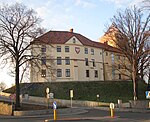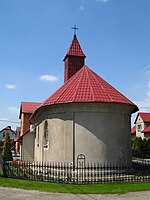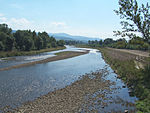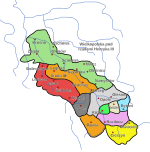Norbert Wollheim
Norbert Wollheim (April 26, 1913 – November 1, 1998) was a chartered accountant, tax advisor, previously a board member of the Central Council of Jews in Germany and a functionary of other Jewish organisations. Wollheim grew up in Berlin. He studied jurisprudence and political economy, but had to cease his studies in 1933 because of his Jewish origin. He then worked as a welder for a metal export firm until the outbreak of war in 1939. During that same period he played a key role in running the Kindertransport which transported 10,000 Jewish children out of the Nazi's reach and into safety. Wollheim engaged himself strongly in the Jewish life and became a managing director of the federation of German-Jewish Werkleute youth. After the night of the November Pogroms known as Kristallnacht in 1938, he helped to organise the transports of Jewish children to Great Britain and Sweden. In 1939, he also personally accompanied Kindertransports to Sweden, but immediately returned to Berlin after leaving the children in safety. Until 1941 he was responsible for the vocational training schools of the Reichsvereinigung der Juden in Deutschland and adviser on the training relating to crafts of Jewish Germans. From September 1941 Wollheim worked at a transportation equipment factory in Lichtenberg, Berlin.
Excerpt from the Wikipedia article Norbert Wollheim (License: CC BY-SA 3.0, Authors).Norbert Wollheim
Stara Droga,
Geographical coordinates (GPS) Address Phone number Website Nearby Places Show on map
Geographical coordinates (GPS)
| Latitude | Longitude |
|---|---|
| N 50.036094 ° | E 19.275534 ° |
Address
Synthos Dwory 7 Sp. z o.o. S.K.A.
Stara Droga
32-642 , Monowice
Lesser Poland Voivodeship, Poland
Open on Google Maps










